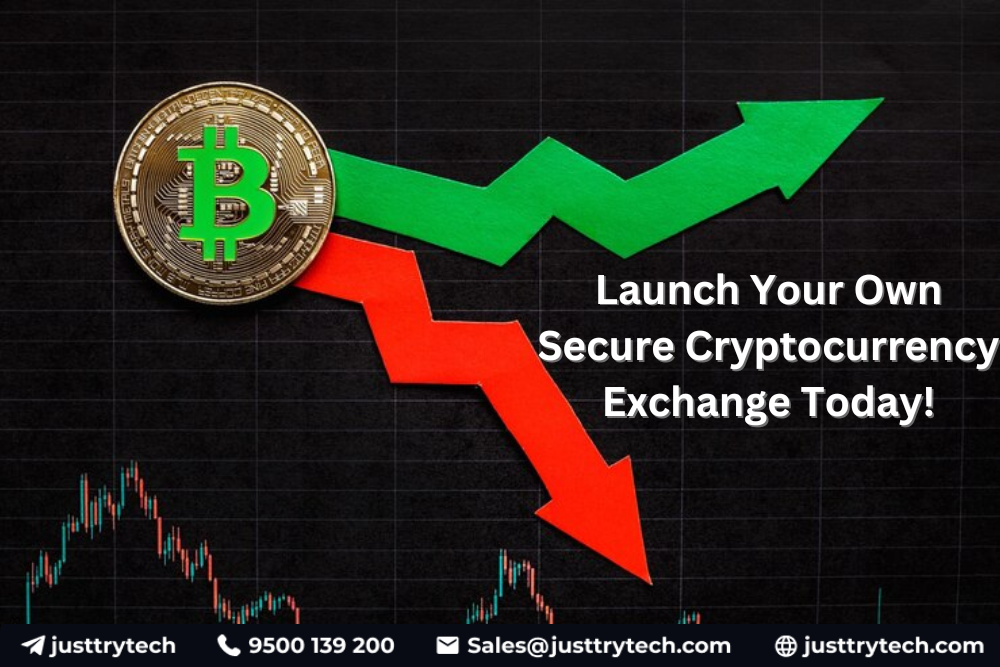Building a cryptocurrency exchange can be a complex and time-consuming process, requiring expertise in blockchain, security, and compliance. However, white-label solutions have emerged as a game-changing option for businesses looking to enter the crypto market quickly and efficiently. By using pre-built, customizable platforms, businesses can launch a fully functional crypto exchange without developing everything from scratch.
This blog explores how to build a crypto exchange using white-label solutions for 2025, the benefits of this approach, and the critical role of Crypto Exchange Platform Development in ensuring a secure, scalable, and user-friendly platform.
What Are White-Label Solutions in Crypto Exchange Development?
A white-label solution is a pre-built software product developed by a third-party provider that businesses can customize and brand as their own. In the context of crypto exchanges, white-label solutions provide a ready-to-deploy platform with essential features like trading pairs, wallet integration, and security measures. Businesses can personalize the platform to match their branding and requirements, significantly reducing development time and costs.
Why Choose a White-Label Crypto Exchange Solution?
Using a white-label solution for your crypto exchange offers several advantages:
- Quick Launch: White-label platforms eliminate the need for extensive development, enabling businesses to launch their exchange in weeks rather than months.
- Cost Efficiency: Developing a crypto exchange from scratch is costly. A white-label solution offers a more affordable alternative without compromising on essential features.
- Customizability: Businesses can tailor the platform to include unique features, user interfaces, and branding, ensuring it aligns with their target audience.
- Proven Technology: White-label solutions are built on established frameworks that have been tested for performance, scalability, and security.
- Focus on Business Growth: With the technical infrastructure handled by the provider, businesses can focus on marketing, user acquisition, and expanding their services.
Steps to Build a Crypto Exchange with White-Label Solutions
1. Define Your Business Goals
Before starting, identify the key objectives for your crypto exchange. Consider:
- Target audience (retail traders, institutional investors, etc.).
- Supported cryptocurrencies and trading pairs.
- Revenue streams (transaction fees, listing fees, etc.).
- Regulatory compliance in your operating regions.
2. Choose a White-Label Solution Provider
Select a provider with expertise in Crypto Exchange Platform Development. Look for features such as:
- A robust trading engine.
- Secure wallet integration.
- Multi-currency support.
- High scalability and uptime.
- Customization options for branding and features.
3. Customize the Platform
Work with the provider to customize the platform according to your branding and functionality needs. Personalize elements such as:
- User interface and experience (UI/UX).
- Trading options (spot trading, futures, staking, etc.).
- Payment gateway integration for deposits and withdrawals.
- Mobile app support for iOS and Android.
4. Integrate Advanced Features
Enhance your exchange with advanced features to attract and retain users:
- Liquidity Integration: Ensure seamless trading by connecting to liquidity providers.
- KYC and AML Compliance: Integrate user verification processes to meet regulatory requirements.
- Security Features: Include two-factor authentication (2FA), encryption, and cold wallet storage.
- Real-Time Analytics: Offer users data on trading volume, market trends, and portfolio performance.
5. Test the Platform
Conduct rigorous testing to identify and resolve any technical or security issues before launch. Key testing areas include:
- Load testing for high user traffic.
- Security audits to detect vulnerabilities.
- Trading engine performance under real-time conditions.
6. Launch and Market the Platform
Once testing is complete, launch the platform with a strong marketing strategy to attract users. Focus on:
- Promotions and referral programs.
- Community engagement through social media and forums.
- Educational content for new traders.
7. Provide Ongoing Support and Upgrades
After launching, ensure consistent platform performance by offering:
- 24/7 customer support.
- Regular updates to enhance features and security.
- Continuous compliance with evolving regulations.
Key Features of a White-Label Crypto Exchange
A high-quality white-label crypto exchange should include the following features:
- Trading Engine: Handles order matching, processing, and execution efficiently.
- Multi-Currency Wallet: Supports secure storage and transactions for various cryptocurrencies.
- User-Friendly Interface: Simplifies the trading process for beginners and advanced traders.
- KYC/AML Integration: Ensures compliance with global regulatory standards.
- Liquidity Options: Provides seamless trading experiences by connecting to liquidity pools.
- Mobile App Compatibility: Offers trading on-the-go for mobile users.
- Security Measures: Includes encryption, DDoS protection, and multi-factor authentication.
Benefits of Using White-Label Solutions for 2025
With cryptocurrency adoption rising, white-label solutions are poised to be a preferred choice for crypto exchange development in 2025. Here’s why:
- Regulatory Adaptability: White-label providers incorporate compliance features to help businesses navigate evolving regulations.
- Scalability: Advanced platforms can handle increasing user volumes as the crypto market grows.
- DeFi Integration: White-label solutions now offer decentralized finance (DeFi) features like staking and yield farming to attract modern users.
- Enhanced Security: Providers use the latest security protocols to address emerging threats.
- AI-Powered Insights: Integrated analytics provide traders with AI-driven market predictions and insights.
Why Work with a Crypto Exchange Platform Development Company?
Collaborating with a professional Crypto Exchange Platform Development company ensures:
- Custom Solutions: Tailored to your business needs and market goals.
- Technical Expertise: From blockchain integration to trading engine optimization.
- Ongoing Support: Post-launch maintenance and upgrades for smooth operations.
- Regulatory Compliance: Guidance on meeting global KYC/AML standards.
- Faster Time-to-Market: Quick deployment without compromising quality.
Conclusion
Building a crypto exchange through white-label solutions is a smart, cost-effective way to enter the growing cryptocurrency market. With features like customizable interfaces, robust security, and scalable infrastructure, white-label platforms simplify the development process while providing a competitive edge.
By partnering with a trusted Crypto Exchange Platform Development company, you can ensure your platform is tailored to your goals, compliant with regulations, and equipped with cutting-edge features. As the demand for cryptocurrency trading continues to rise, leveraging white-label solutions positions your business for success in 2025 and beyond.





Comments